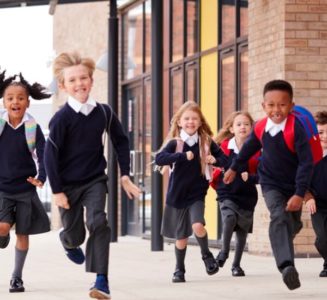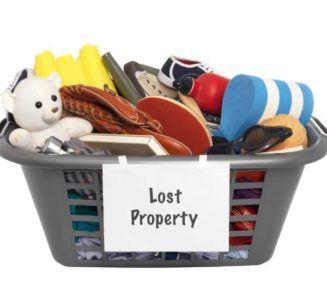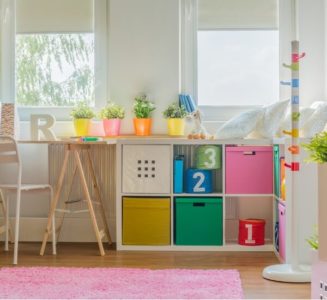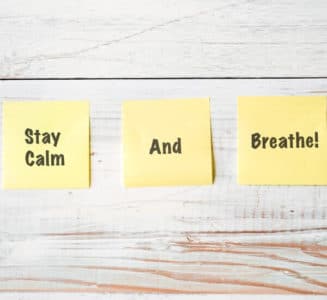With school on its way back, one thing most parents are going to be wondering is how to help kids not to lose things.
From books to stationery, lunch boxes to sports equipment and shoes, it is incredibly difficult to keep track of everything. Kids lose stuff and that’s a fact. As the saying goes, they would even forget their heads if they weren’t screwed on!
It is possible to teach kids how to not lose things. Apply the right techniques to minimise lost items and find some peace.
How to help kids not to lose things
Firstly, let’s look at why kids lose things:
All kids are egocentric. They go from moment to moment. Their world view revolves around themselves and they are unable to live outside what they are doing. If another kid calls them over to play, that is
their priority. Hats, jumpers and toys are instantly forgotten.
Bullies. Are your child’s things being stolen, not actually lost? Kids often feel shame when they are bullied. They may be hesitant to tell you what is going on. If precious things go missing but basic supplies
are always accounted for, have a careful talk with your child. Gently ask them where their things are but try not to pressure them. In time the truth will come out and you can start communication with the relevant parties to amend the situation.
They don’t value their stuff. In days gone by, a precious toy was just that: precious. Now, kids know the next toy is around the corner. It can be difficult to help them understand why they need to take care of their things. Persistence and reminders help.
Tough love can come into play as well.
They are too busy. When life is a rush, things get left behind. A packed schedule means no time to think. Setting the alarm a bit earlier or reducing activities gives kids the time they need to be more careful.
ADHD can play a role. All kids can be forgetful but some kids find it harder than others. This might be due to Attention Deficit Hyperactivity Disorder. ADHD as we commonly know it means that afflicted kids (and many adults) are not able to process consequences properly. They also lose focus easily. If you suspect your child loses things more than is reasonable, it might be worth having a chat with your family GP.
Helping your kids not to lose things: Your response is important
Yelling won’t work: Kids lose stuff. It’s going to happen so ranting and raving about it will not help. Most kids shut down if you yell. They block you out and don’t take in anything you are saying.
While it’s understandable that you will be angry when the third lunchbox has gone missing this term, it is important to stay calm and talk to your child. Yelling is only a vent for your frustration and not a solution to the problem. It is vital that you address the reason things are going missing and not just yell. Without pinpointing why things disappear and implementing solutions, you will never solve the problem.
Make your child responsible in the search: If your child knows you will put in the work to find their missing shoe, they will not be too worried about keeping track of it in the first place.
If you’re still wondering how to help kids not to lose things, enlist their help to search. This means they understand their time that will be wasted in searching for neglected items.
Older children don’t even need your help. Sit back while they hunt for their own items (even if you know where they are).
Be reasonable and work to the future: Talking about what has happened and why is the best way to go.
Ask your child as many questions as you can and try not to be judgemental. Once you have a good grasp of how and why your kid is losing things, you can start to make an action plan.
Helping kids to understand their role in taking care of their things
Teach kids the value of things: Most of what kids lose has to be replaced. As you know all too well, every time something has to be replaced it costs money. This, along with the waste of valuable time on fruitless searches, is why parents get so angry about lost stuff.
When you’re working on how to help kids not to lose things, instil in them the value of their property. Let them know that you spend so much time at work in order to earn money to buy their stuff. Every time they lose something, it means more work that you have to do.
If your kids receive pocket money, consider reducing it to help cover the cost of lost items. They will soon see the value in things if losing them impacts their own pockets.
Make the kid’s stuff personal to them: Your child is more likely to take care of something they love. If they couldn’t care less about their lunchbox, they won’t take care of it. Let them choose a lunchbox in a favourite colour or with a favourite character on it. This makes it worth keeping an eye on.
Helping your kids not to lose things: Establish good routines and behaviours
Create designated spots at home and school: It is easy for anyone to lose things if these items don’t have a place to go. Allocating specific spots for all items will help immensely. At the very least there should be a corralling/dumping area near your front door.
Many parents with less focused children use a tub or crate for storing everything that has been out during the day when it is finished with. At the end of the day, the corralling spot is gone through and everything is placed back in its correct home.
This can be a great alternative for kids who are less likely to stop to put things away as they go. They can toss stuff in the tub and help sort it out later. If you love being organised, create a great- looking hub for shoes, school bags, water bottles and hats. Have a hook or cubby hole for each item. Label things with your kids names. As they come in the door, stop them and enforce a routine. Reward them the first few times to help habits form.
Take a look at some home storage ideas on Pinterest. (Note that in the USA they use the term ‘mud rooms’ for the entry to their homes). There is also a Facebook group called Mums Who Organise with endless hacks, ideas and inspiration.
Work from checklists: Teach your kids to run through a quick checklist, either mental or written down. This is another way to help kids not to lose things. Most adults will at least think ‘wallet, phone, keys’ as they leave the house. This is a great trick for kids to learn early. If a mental checklist is a challenge, a list attached to the flap of the school bag can be a great start. For children who can’t read, make a picture chart or label cubby holes with images.
Helping your kids not to lose things: The power of buying less
Decluttering is your secret weapon for keeping track of what you have. Owning more than one of everything may seem a good solution, but it actually works in reverse. A child who knows there are plenty of spare lunchboxes is blasé about taking care of any of them. Value is in scarcity and this is something that kids will understand.
Children can find owning lots of things quite overwhelming so don’t overload them with belongings. Imagine you have eighteen pencils, fifteen textas, three sharpeners, two erasers, five notepads, two pairs of scissors, two water bottles, etc, etc. to keep track of. Even as an adult this starts to become daunting!
Owning just one of everything forces vigilance. Then there’s the fear of going without. If your kid has to take lunch in a paper bag for a week or two, they will be likely to take better care of their new lunchbox when it comes.
Quick hacks to stop losing things
Good labelling practices
As a parent, labelling is your best friend. An item with your child’s name on it is more likely to be returned. It also makes the ‘lost property rummage’ far less painful. Everything that can be labelled should be labelled. And re-labelled.
A marker pen is a great way to label things but it will fade or rub off, sticky labels can work well too but they peel off. Make sure you check how well your kid’s stuff is labelled regularly.
Include a phone number so people can contact you to return a water bottle, wallet or school hat.
Have an action plan
Formulate an immediate action plan for when your kids lose something. Hopefully, once you’ve implemented a few of the tips from above, you will have a place to start. Check your corralling point first. Next, have a plan of action; where, when and who.
– Where was the item last seen
– When was it last seen
– Who was there at the time?
If the where is nearby and the when was not long ago, then off you go. Should that prove more difficult, it is time to contact the who, if you can.
Stay calm
Yes, it’s frustrating. Infuriating even. But ranting and raving and losing your cool will not help. Stay calm and work through the problem methodically. Most of the things kids lose are replaceable without too much outlay so don’t go overboard with consequences.
Pro tip: Where possible, buy a back up prized toy and stash it somewhere. This makes a true loss less traumatic. Blankies, favourite cuddlies or anything your child is attached to deserve to have a back up for everyone’s sanity.
‘So, how to help kids not lose things? Most of all, remember to stay calm and talk it through. Remember though, if you’re dealing with a recurring problem that causes stress for you and your kids, it’s a good idea to consult with a healthcare professional. Your GP may be able to help you, even if it’s by referring you to other specialists.
For children with certain cognitive difficulties such as ADHD, losing things is about more than laziness or forgetfulness. They will often mean well and genuinely try their very best but they are not mentally capable of doing what other kids can do.
Talking to your GP can be the difference between your child learning why they are different and your child going through life feeling incapable and useless. With intervention, many cognitive issues can be managed very satisfactorily, improving your child’s quality of life as well as your own.
Always losing things as an adult?
If you’re as bad at keeping track of stuff as your kids, it may surprise you to realise you have ADD or ADHD. Many adults find this explanation for their absent-mindedness later in life.
To be at the problem, follow the tips above. Make a place for your handbag, keys and phone. Put them in their spot as soon as you walk in the door. Label your things and avoid buying extras because it causes your home to become cluttered.
Another tip is to practice mindfulness. As you enter a car park, say out loud where you put the ticket. Announce to the family that the passports are in the bottom drawer in the study. It helps keep the memory in your brain.
Tracking devices make a handy tool. Add a beeper to your keys and connect it to a phone app. This lets you click the beeper to find your phone or tap the phone and find your keys. A Godsend!
And if you’re looking for something fun to do with your kids, perhaps as a reward for getting through a week without losing something, check out what’s happening for kids & family at Mingara: https://www.mingara.com.au/whats-on/






